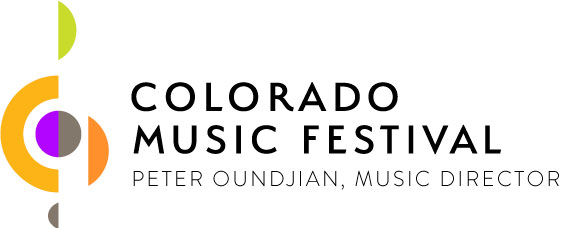by Marc Shulgold
For a while, a few years back, Sharon Isbin’s phone began to ring with regularity – but not from scammers or nosey relatives. On the other end was Chris Brubeck, son of legendary jazz artist Dave Brubeck. And Isbin, one of the world’s leading classical guitarists, welcomed each of those calls.
The two were working closely together on a guitar concerto that Chris was composing for Isbin in 2015 – and this collaboration would result in a stunning, wildly adventurous work titled Affinity. Affinity was released last month can be heard here.
“Chris is one of the loveliest humans I’ve ever met. He was amazing to collaborate with – always open to suggestion,” the guitarist said in conversation from her New York home. “He’d call and say, ‘Can I drop by?’ Then, he would show up with the music and run it by me.”
This is not the typical work ethic for composers, most of whom prefer to labor alone. But Brubeck is not your typical composer. And Isbin is not your typical guitarist. He inherited his father’s jazz instincts, becoming an expert on trombone, keyboard and bass. In fact, he and his brother Matt toured with the elder Brubeck for years, before their father’s death in 2012. His interests grew and now extend all over the musical map – which perfectly blends with Isbin’s similarly eclectic tastes. She’s played innumerable styles, seemingly comfortable in every genre.
The guitarist had come up with the idea of a collaboration after hearing Interplay, a piece that Chris had written for three violinists, each from three musical worlds: Nadja Salerno-Sonnenberg (classical), Regina Carter (jazz) and Eileen Ivers (traditional folk). “That music just stuck with me, and soon after, we talked about a concerto,” she said. The new work was commissioned by the Betsy Russell Fund for New Music, and had its premiere in April, 2016 with Elizabeth Schulze and the Maryland Symphony. It was an immediate hit, leading to an additional seven or eight performances, according to Isbin.
That said, the process of writing Affinity didn’t unfold easily – though the title brightly refers to the similar mind-sets of composer and soloist. A particular sticking point for the guitarist was the relaxed middle section of the piece, serving as a welcome respite between the dazzling outer segments of virtuoso playing by soloist and orchestra. For Isbin, that middle part just wasn’t right. And she had no trouble voicing her cool response.
“I just didn’t connect with it,” she said of that section of Brubeck’s original score. “Somehow, over the years, I’ve learned to trust my instincts. I said to him, ‘Would you like to pay homage to your father?’”
Her suggestion opened things up. Brubeck agreed that this would be an opportunity to remember Dave, whose death he was still mourning, along with the passing of his mother in 2014. In his program notes for the concerto, Chris recalled a peaceful moment while working in the Connecticut studio he had shared with his father: “It was October, and gazing out a window overlooking a stream surrounded by glorious trees, I saw the wind spin a few golden leaves off their branches and they lazily circled down to the water.”
That lovely scene reminded him of a song the elder Brubeck had written years before, Autumn in Our Town. Its lyrics, so perfectly matched with the melody’s dreamy descending line, spoke to Chris. The words set the song’s mood: “The village green is golden now. Autumn leaves flame and flutter down. October days in golden haze drift through our New England town.”
The resulting arrangement of that tune became, in Isbin’s words, “the soul and heart of the piece. It was truly a union of Chris and his father.”
As it turned out, that was the easy part in the concerto’s creation. “I spent hours and hours editing the score,” the guitarist recalled. “I must have spent hundreds of hours just on the first page” – a dazzling display of six-string pyrotechnics exploding right from the first bar. True to the spirit of collaboration, Brubeck was on board with all her changes.
“He said, ‘Whatever works. I knew you would fix things,’ ” she said. “And I did take out large chunks. The original cadenza (a traditional concerto’s unaccompanied show-off section) was unplayable. Actually, we ironed it out about three days before the first performance.”
Audiences’ unfamiliarity with Affinity will no doubt be balanced by the oft-heard melodies of Rodrigo’s inescapable Concierto. For Isbin, the pairing makes perfect sense. “Really, each of them showcases similar styles. Each connects with listeners on a global scale.”
The guitarist then suggested a closer, more subtle connection between the two concertos. The central section of Brubeck’s work, as we’ve noted, is a quiet homage to the composer’s father. A similar remembrance colors the beautiful slow movement of Rodrigo’s Concierto – a sub-plot unknown to many listeners, and one, it seems, is considered by experts to be a myth. The Adagio, Isbin said, represented Victoria Rodrigo’s grief after her miscarriage. That occurred in 1939, the year of the work’s completion. Those who believe in that story (including this writer) point to the lovely ending of the Adagio, with its slow, understated, ascending arpeggio, seeming to depict a peaceful journey up to heaven.
Guitarist Sharon Isbin will perform on Thursday, July 2, at 7:30 pm as part of the virtual Colorado Music Festival. Join the Virtual Festival (it’s free!) by visiting www.coloradomusicfestival.org/register.
